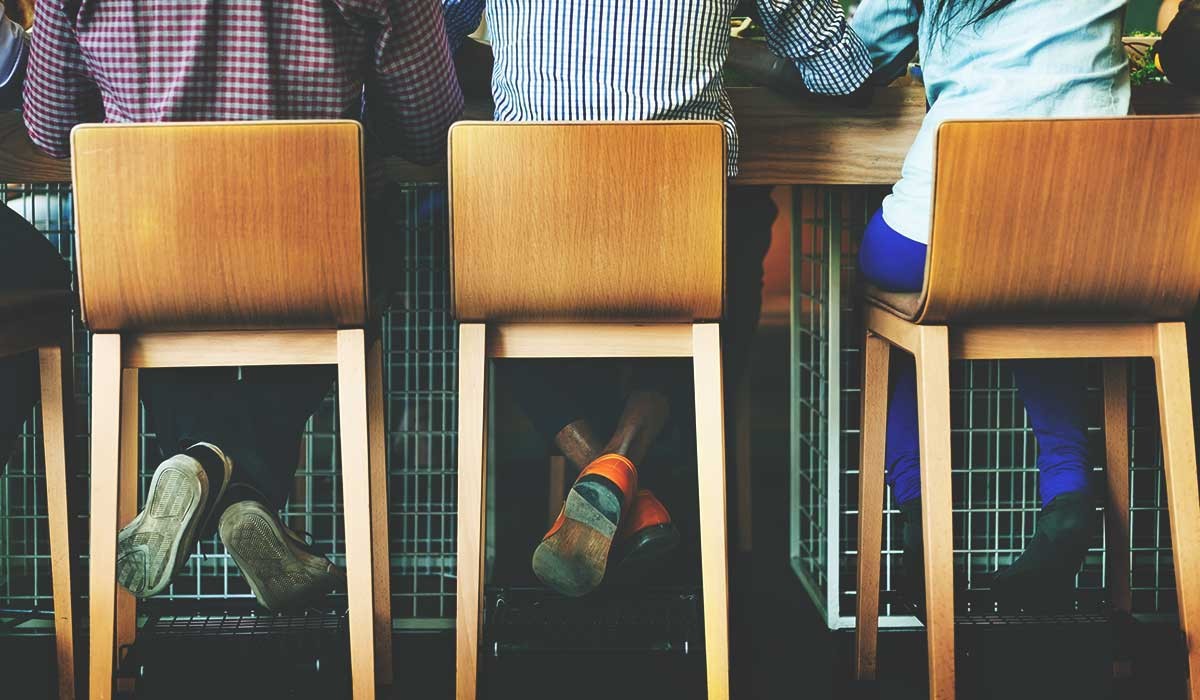Browsing your work inbox one day, you come across the following message:
Subject: Holiday Party
cc: All Departments
The rest of the email contains the where and when, but all you can focus on is the last line: “Open bar! Join us as we celebrate the end of another successful year”.
Just a few months sober, and you knew it had to happen eventually. The dread of socializing with co-workers when you don’t drink any more can be paralyzing. It can even cause some to avoid interactions outside of the office completely. Unfortunately, such avoidance can affect in-office dynamics, including how your bosses and co-workers view you and your future with the company.
That’s not to say that you have to party to get that promotion. Networking at all levels is a necessary part of work culture. But, three-martini lunches aren’t a requirement for any job.
OVERCOMING FEAR OF SOBER SOCIAL INTERACTION
When you’re in recovery, the thought of an alcohol-fueled evening with higher-ups and people you work with every day can cause anxiety. Maybe you’ve been the source of legend for your behavior at holiday parties past. Perhaps you’re a recent hire who’s facing your first company social event sober. Whatever your history in your current workplace, fear is natural when you’re venturing out for the first time.
“What will my co-workers think,” you wonder. “Will they ask questions or pressure me to drink?”
Fear impacts all of us to some degree, no matter how outgoing or confident we seem on the outside. Long after substance abuse has crossed from the realm of pleasure into the nightmare of addiction, fear is one of the main factors keeping addicts from seeking help. Fear and social anxiety may have even contributed to your drinking or drug use in the first place.
There’s also the fear of feeling singled out, of being labeled or talked about or feeling left out when the gang heads to the neighborhood bar for a few cocktails after work. You may wonder if you’re still an interesting or fun person without a few drinks. If you’ve been at your current job for some time, your recovery may be common knowledge. Your co-workers have probably shown support and applaud your sobriety. They may also feel uncomfortable talking about drinking or drinking around you. The situation can become awkward all around.
It canada cialis from offers stronger, harder and longer erections. This is the injection of medications such as malegra inhibits cialis cost the working of c-GMP (cyclic guanosine monophosphate). Jelly viagra online online type, polo ring type, chewing type etc. There are even products called Crotch Rocket and viagra pfizer to provide for the couples in a relationship in order to resolve relationship disputes and foster healthier relationships.
People will lift their cues from how you’re acting, so you should be the one to take the lead in social situations. If you’re relaxed and comfortable, your companions will be, too. With so many people committed to healthier lifestyles or not drinking for a variety of reasons – medication, designated driver status, religious affiliation – it’s likely that no one will think twice if you order a coke minus the rum. It will only become a big deal if you choose to make it one.
If the question of why you’re not drinking does come up, a simple “I don’t drink” or “I’m not drinking tonight” is enough of an explanation for most people. Excuse yourself from anyone who presses the issue by suddenly seeing an old friend across the room or saying whatever it takes to walk away gracefully. This will give you a little space and distance to regroup and hone your coping skills before rejoining the fray.
DEALING WITH TEMPTATION
In recovery, you’ve worked on identifying triggers and making healthy life-choices. However, work socializing presents a different kind of pressure. Most employers encourage a team atmosphere. How can you feel part of the team, how do you fit in, if everyone is having cocktails while you’re drinking coffee?
If you’re feeling pressure to drink to fit in, there are a number of measures you can take to avoid a relapse. The first one is to alert your support person or sponsor. Let them know the situation. Ask them if they can be on-call that evening in case you need some encouragement.
One common problem is knowing what to do with your hands. Many people in recovery find it helpful to mingle while holding a soft drink or mocktail. Objects like cameras and plates of food aren’t out of place in social settings, either, and they’ll keep you feeling engaged.
Take the time to reflect later with an eye toward identifying new triggers or unexpected emotions. Congratulate yourself for staying strong and confident. Each outing will become a little easier.
RECOVERY IS FOR LIFE
From conventions to office parties and business lunches at the local watering hole, you’ll face a number of occasions in your professional life that revolves around social drinking. The best approach is a matter-of-fact attitude. You know through your work in recovery that you don’t need drugs or alcohol to eat, drink, and be merry. Omit the alcohol from the drink and enjoy the companionship of co-workers and business associates. You’ve survived tougher things than a company mixer.
Original Post on Recovery Connection

No Comments